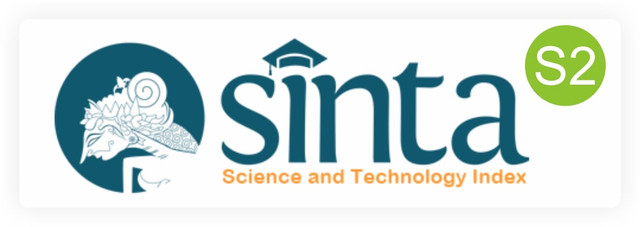PENGARUH KONSENTRASI ETANOL SEBAGAI PELARUT PENGEKSTRAKSI TERHADAP KADAR NAFTOKINON DALAM EKSTRAK DAUN PACAR KUKU (Lawsonia inermis L.)
DOI:
https://doi.org/10.12928/pharmaciana.v3i2.433Keywords:
Lawsonia inermis L., naphthoquinone, TLC DensitometerAbstract
The extract quality can be affected by the components and concentration of chemical compounds contained
in the extract.Type and quantities of chemical compounds that are dissolved in the extraction process is strongly
influenced by the solvent extraction. The aim of this study is to determine the effect of concentration of ethanol as
solvent extraction on naphthoquinone content in Henna leaves extract. The extraction method was done by
maceration for one hours with water, ethanol 50% , 70% , 90% and 95% v/v solvens of the dried Henna leaves
powder. Each macerate was made 5 % w/v concentration and than was spotted 5 µL on plate of silica gel F 254 and
eluted with mixture of chloroform - methanol (17:3 v/v) as mobile phase. The spots on chromathogram were
scanning and measured the area under curve with TLC densitometer at maximum wave lenght. The results showed
that spot at Rf 0.31 had similar spectra with naphthoquinone standard and same maximum wavelength at 279 nm.
The result of solvent optimization indicated that the best solvent extraction for Henna leaves was ethanol 50% v/v
with the highest naphthoquinone contentat 1.43 ± 0.1942% w/v.
Downloads
Published
Issue
Section
License
Authors who publish with Pharmaciana agree to the following terms:
- Authors retain copyright and grant the journal the right of first publication with the work simultaneously licensed under a Creative Commons Attribution License (CC BY-SA 4.0) that allows others to share the work with an acknowledgment of the work's authorship and initial publication in this journal.
- Authors are able to enter into separate, additional contractual arrangements for the non-exclusive distribution of the journal's published version of the work (e.g., post it to an institutional repository or publish it in a book), with an acknowledgment of its initial publication in this journal.
- Authors are permitted and encouraged to post their work online (e.g., in institutional repositories or on their website) prior to and during the submission process, as it can lead to productive exchanges, as well as earlier and greater citation of published work.


1.png)











